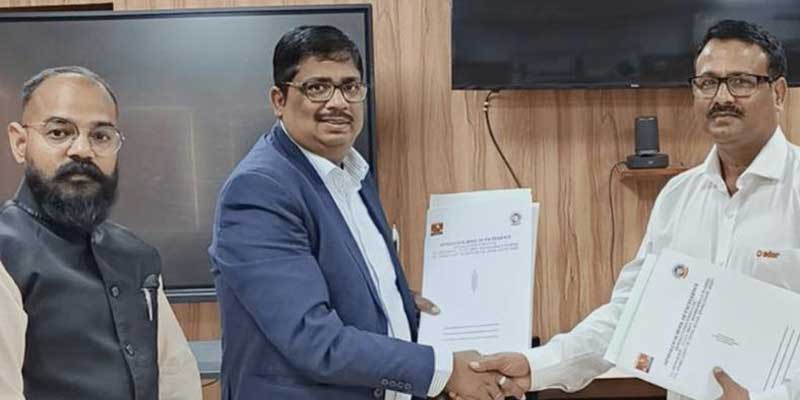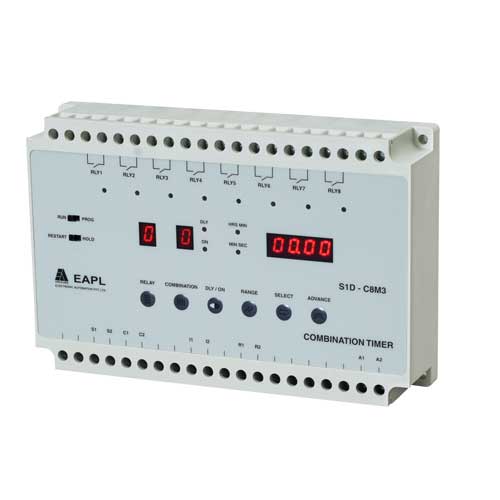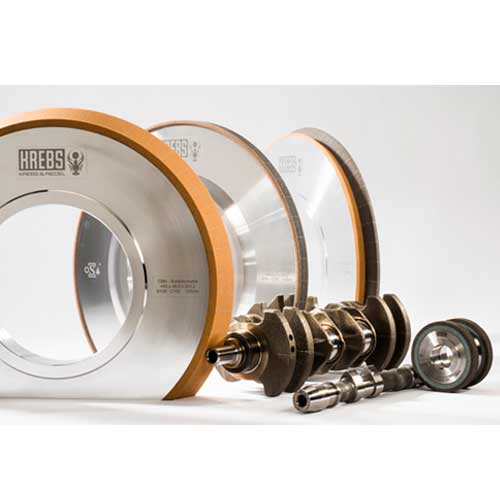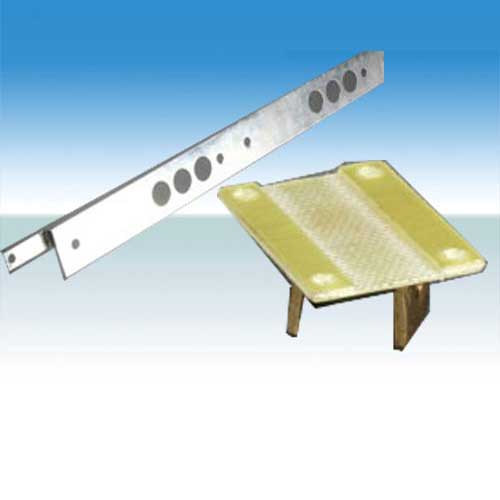Schedule a Call Back
Make in India adds impetus to Plastics & Rubber Industry
 Technical Articles
Technical Articles- Nov 18,15
Plastics and Rubber industries are playing an important role in manufacturing sector of India.
From plastic pumps that can withstand highly corrosive chemicals to plastic valves for the human heart, there is hardly any aspect of industry and human life that is untouched by the world of polymers. With unique properties and several advantages, plastics are a material of choice for many household and industrial products, replacing costly metals and natural materials like wood. From toys to automobiles, electricals and electronics – switchgear, mobile phones and consumer electronics, furniture and white goods, construction and packaging, plastics are playing a dominant, all-pervasive role among all materials.
According to authenticated figures, the global plastics industry produced 345 million tonnes (MnT) of the material in 2013, starting from a zero base in 1950. Of this India’s share is a mere 8.5 MnT. China today is the largest producer of plastics in the world, its 2013 share being around 75 MnT, accounting for almost 25% of the global production. It is no surprise that China is also the world’s largest exporter of plastics.
At about 10 MnT per annum, India still lags behind the major economies of the world in plastics consumption. The country’s per capita consumption of plastics is a meagre 8 kg, compared to 109 kg for US and 29 kg for China. This alone indicates the scope for the industry in India as the economy grows bringing more and more people in the consumption bracket. Major players in the plastics industry believe that plastics consumption in India across all categories of polymers will double by 2020, to about 20 MnT. The packaging industry in India is among the largest consumer of various types of plastics.
Engineering Plastics
In recent years, use of plastics in industry has grown thanks the rapid developments in this field spurred by R&D efforts of global giants like BASF, DuPont and several other MNCs. Engineering plastics are plastic materials that are generally used in applications which require high level of performance and exhibit superior properties such as high mechanical strength and heat and chemical resistance. Engineering plastics have better mechanical, thermal properties than the more commonly used commodity plastics.
The main benefits of engineering plastics include: weight reduction; cost reduction; electrical insulation; flame retardancy; increase in productivity by reducing lead time of component; hydrolysis resistance; corrosion resistance; and high mechanical strength.
According to MarketsandMarkets, a leading company publishing premium market research reports, the global market for engineering plastics in terms of revenue was estimated to be worth $ 45.2 billion in 2011 and is expected to reach $ 97.2 billion by 2020.
The engineering plastics market is segmented into six applications segments, viz., automotive & transportation, electrical & electronics, industrial & machinery, packaging, consumer appliances, and others. Among these applications, automotive & transport accounted for largest market share in 2014, in terms of value and volume. Engineering plastics have region specific demands that are differentiated by placement, cost, and efficiency. These demands are also governed by the prevailing environmental laws in the particular region. For instance, in Europe and North America where environmental laws are very stringent, environmentally friendly products are in high demand, says the report.
Plasticulture
Plastics are also playing an important part in agriculture and horticulture, leading to what some experts have termed as the ‘Second Green Revolution’. Whether it is Drip Irrigation System with precise application of irrigation water and plant nutrients at low pressure and frequent intervals through drippers/emitters directly into the root zone of plant, or Sprinkle Irrigation System where water is sprayed under high pressure with the help of a pump and released through a small diameter nozzle placed in the pipes, it is plastics that is driving the revolutionary, energy saving and environment-friendly. In Maharashtra, Jain Irrigations Systems Ltd, a company that began with trading of PVC pipes and drip irrigation systems in the early 1960s successfully entered manufacturing of these products and not only pioneered drip irrigation in India but also has become one of the largest manufacturers of PVC and PC sheets in India and ranks globally amongst the top 5 companies. The Jain Piping Division is today the largest producer of thermoplastic piping systems for all conceivable applications with pipes ranging from 3 mm to 1600 mm in diameter. The group has entered other agriculture segments like tissue culture production of banana and pomegranate plants and food processing.
Besides this, plastics are also used for ponds and reservoir linings thus conserving water; and greenhouses – framed structures covered with glass or plastics film that act as selective radiation filter, in which plants are grown under the controlled environment. Other use of plastics include plastic mulching – covering the soil around the plant with plastics film, straw, grass, hay, dry leaves, stones, etc., to prevent loss of moisture and act as a barrier between the soil and atmosphere; and plastic tunnels that facilitate entrapment of carbon dioxide, thereby enhancing the photosynthetic activities of the plant that help to increase yield.
According to a recent FICCI report on use of plastics in agriculture, the wider use of plasticulture in India can reduce the loss of harvest and increase efficiency thus contributing more to the GDP. It is estimated that the agriculture output can be increased by Rs 68,000 cr by making wider use of plasticulture applications. Unfortunately, while global average for plastics demand in agriculture is ~8%, in India it is substantially lower at only 2%.
Rubber
India is the 3rd largest producer and 2nd largest consumer of rubber in the world. According to trade sources, over two million people are employed in more than 5,000 rubber and tyre units, and another one million in the plantation sector across the country. The rubber industry in India, which is currently estimated at Rs 86,000 crore, is dominated by the small-scale sector. Around 90 per cent of the 6,000 rubber products manufacturing units in the country are micro, small and medium enterprises (MSMEs), and they also account for 40% of the rubber products exports. The tyre industry dominates the sector, accounting for Rs 51,600 crore, the balance Rs 34,400 crore coming from other products. The total rubber consumption is pegged at 17,65000 MT.
“The rubber industry has a strategic fit with the government’s initiatives as thousands of units manufacture around 35,000 different rubber products that find use across critical sectors like auto, defence, healthcare, agriculture and other niche areas,” says Mohinder Lal Gupta, President, All India Rubber Industries Association (AIRIA), a not for profit making body that is serving the rubber industry and trade with the objectives of safeguarding and promoting interests of the industry, especially the MSMEs. Established in 1945, AIRIA celebrated its 70th anniversary in Mumbai recently. Mr Gupta, a first generation entrepreneur, is the Managing Director of Vinko Auto Industries Ltd, a company he founded in 1965, which celebrated its Golden Jubilee earlier this year. Vinko with its Alaska brand is today one of the leading manufacturers in the country of world class belts and hoses for automotive and industrial applications. Vinko products are exported to more than 40 countries including USA, Canada, Germany, Italy, Poland, Russia and Australia. In India the company is OE supplier to major automotive manufacturers, railways and state transport undertakings and defence organisations.
Rubber-metal bonded products are playing a key role in various industries – automotive, machinery (installation), railways and aviation, etc. Metal to rubber bonding is a process of achieving an adhesive bond between metal and rubber also curing the rubber in the process. While the smaller parts are mainly used for the isolation of noise and vibration in automotive and engineering applications, larger units are used to decouple translational movement for bridges and buildings.
The rubber industry in India suffers from skills shortage in the absence of proper and organised training facilities, as the workforce is basically trained ton the job. To address this need, Rubber Skill Development Council (RSDC) has been constituted under the aegis of National Skill Development Corporation (NSDC), in collaboration with AIRIA and Automotive Tyre Manufacturers Association (ATMA), with the aim to identify and fulfil skill development needs in the rubber sector. The RSDC will encourage the industry to employ skilled and certified manpower.
While the average consumption of rubber worldwide is 3.2, kg, in India it is a low 1.16 kg compared to 14 kg in developed countries and 8 kg for China. “This gives us an idea the growth we are heading for in the next decade,” Mr Gupta said addressing members at AIRIA’s 63rd AGM recently. The situation is comparable to that of plastics consumption in India. While the future seems bright, requires a mind set change to jump on this bandwagon of growth, propelled by Make in India.
Related Stories

Hindalco partners with Ador Welding to enhance employees’ welding skills
Ador Welding Ltd and Hindalco School of Excellence have launched two key initiatives - the Training of Trainers (TOT) program and the Evaluation and Certification of Trainees in the welding trade.
Read more
Indore’s RR CAT plans AI-driven innovations in welding
RRCAT’s proposal, which aligns with the government's AI (artificial intelligence) vision in Amrit Kaal, has already secured approval at the Department of Atomic Energy (DAE) level.
Read more
SKF India dedicates a song to mechanics
SKF India - a manufacturer of bearings, seals, lubrication and lubrication systems – has released "Heroes of the Road”, a heartfelt song dedicated to the unsung heroes of the automotive industry..
Read moreRelated Products

Combination Timers
Electronic Automation Pvt Ltd offers a wide range of combination timers.

Cbn and Diamond Tools
Krebs & Riedel Abrasives India Pvt Ltd offers a wide
range of CBN and diamond tools.

Connectors
G R Enterprises offers a wide range of connectors.
















